- Joined
- Jan 5, 2019
- Messages
- 1,572
- Reaction score
- 902
Do you feed the invisible cleaning crew anything special?
Follow along with the video below to see how to install our site as a web app on your home screen.
Note: This feature may not be available in some browsers.
No, not really. At least for my aquariums, they have plenty to feed on anyways.Do you feed the invisible cleaning crew anything special?
Yes I have added microbes from a few different vendors and I have an order coming next week from Hawaii. That’s why I’m cleaning what I can before the live sand and stuff comes. I’m going to do more de thatching today and setup four one gallon jars with the detritus. Is there anything you recommend I add to them that is reef safe? I already started a Phyto tank with just old water and f2 fertilizer a few weeks ago.Yes, and no! (Momma gonna roll over in her grave she her's a prayer of me wasting a beer on the lawn!)
The issue of build-up of detritus in our tanks seems to be more closely related to thatch in the lawn. The article mentions a thatch rake, I'd suggest siphoning the detritus and blasting the rock (powerhead, basting tool, etc) are more like using the thatch rake to remove excess funk from the habitat.
But if you do decide to put something in the tank, please, for the sake of mom, do not waste beer (or Vodka- come to think of it) or dish soap in your tank.There have been a few mentions in threads about adding mud (mud=microbes + mineral dirt) to our tanks to improve the microbe population diversity, so I do think there is something "there" but specifically what that is isn't very well understood. Terrestrial ecosystems have many years of study because they are easier for air breathers to access and replicate in the lab or at a university study farm.
The other interesting thing about the beer + dish soap + ammonia is that the ammonia is fertilizer which is food for the microbes but so is the thatch? I don't see the article making much more sense than I am, before coffee and after a sleepless night worrying about ordering my new reef thatch rake, which I have not designed yet?
Yes, there is something here there.
Yeah I was only going to use ammonia in one jar, Coca-Cola in another, Seachem reef plus in another and Brightwell Razor in the last.The only thing I recommend in go easy on the ammonium nitrate
Coca cola, Really?Yeah I was only going to use ammonia in one jar, Coca-Cola in another, Seachem reef plus in another and Brightwell Razor in the last.
Yeah I heard someone using Coca Cola in his reef and I want to try it first in an experiment.Coca cola, Really?
? (I use muriatic for some applications-really!) ?
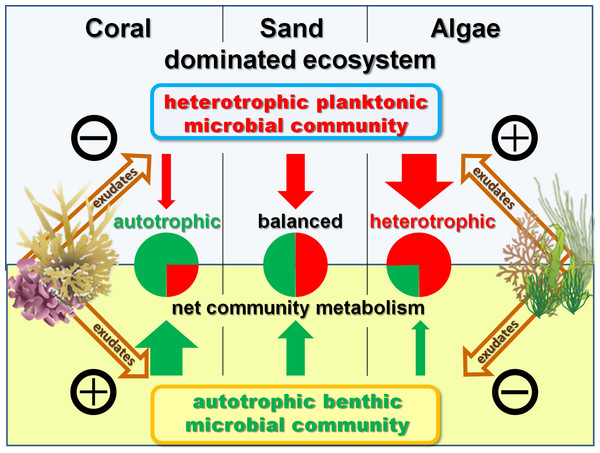
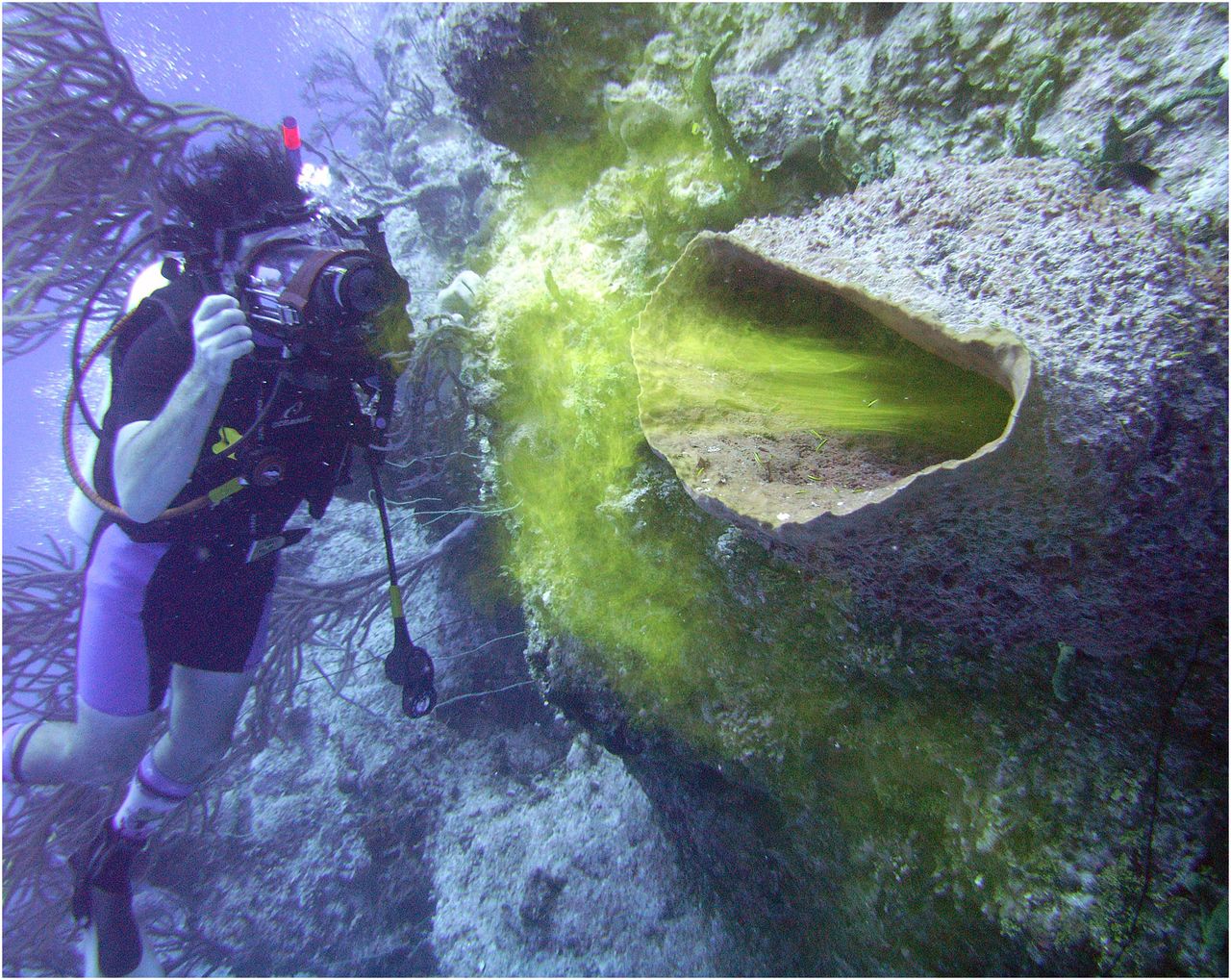
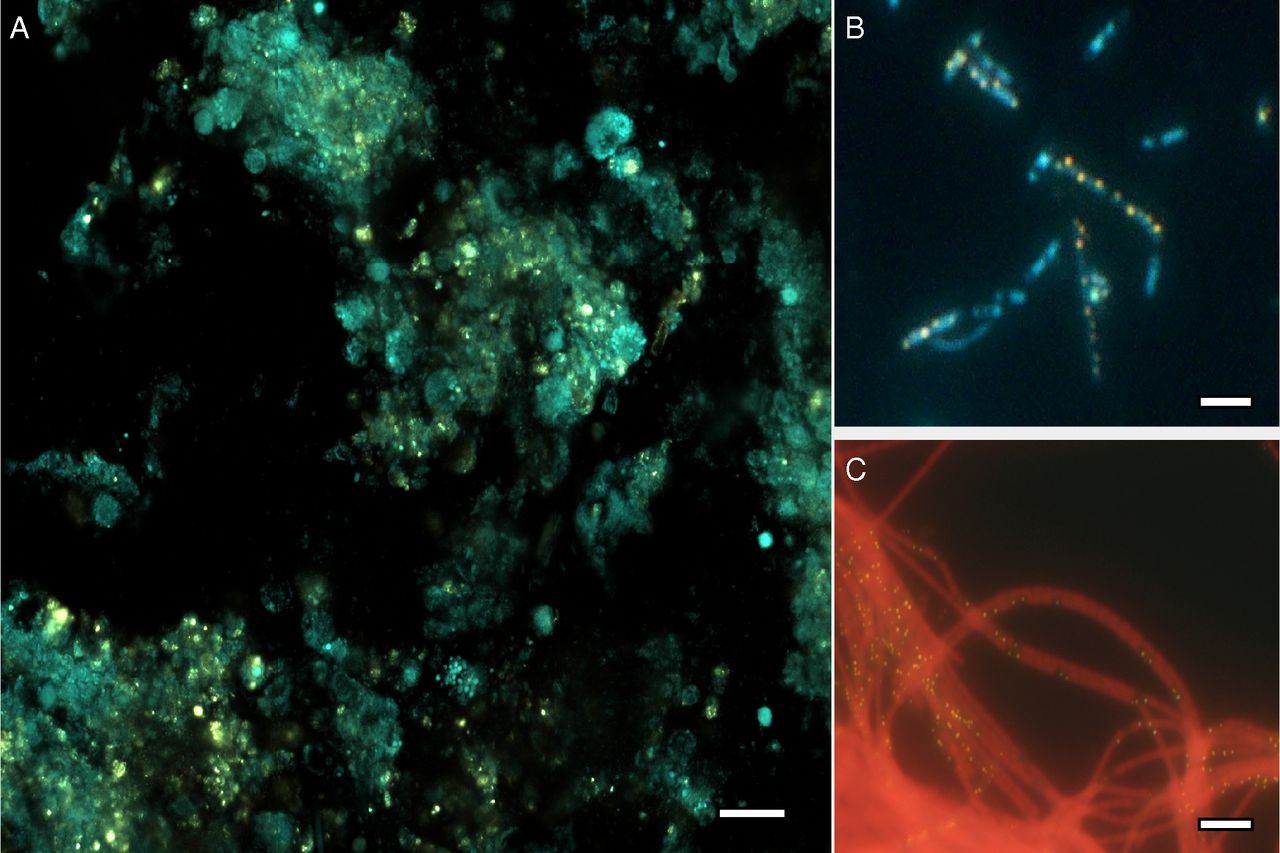
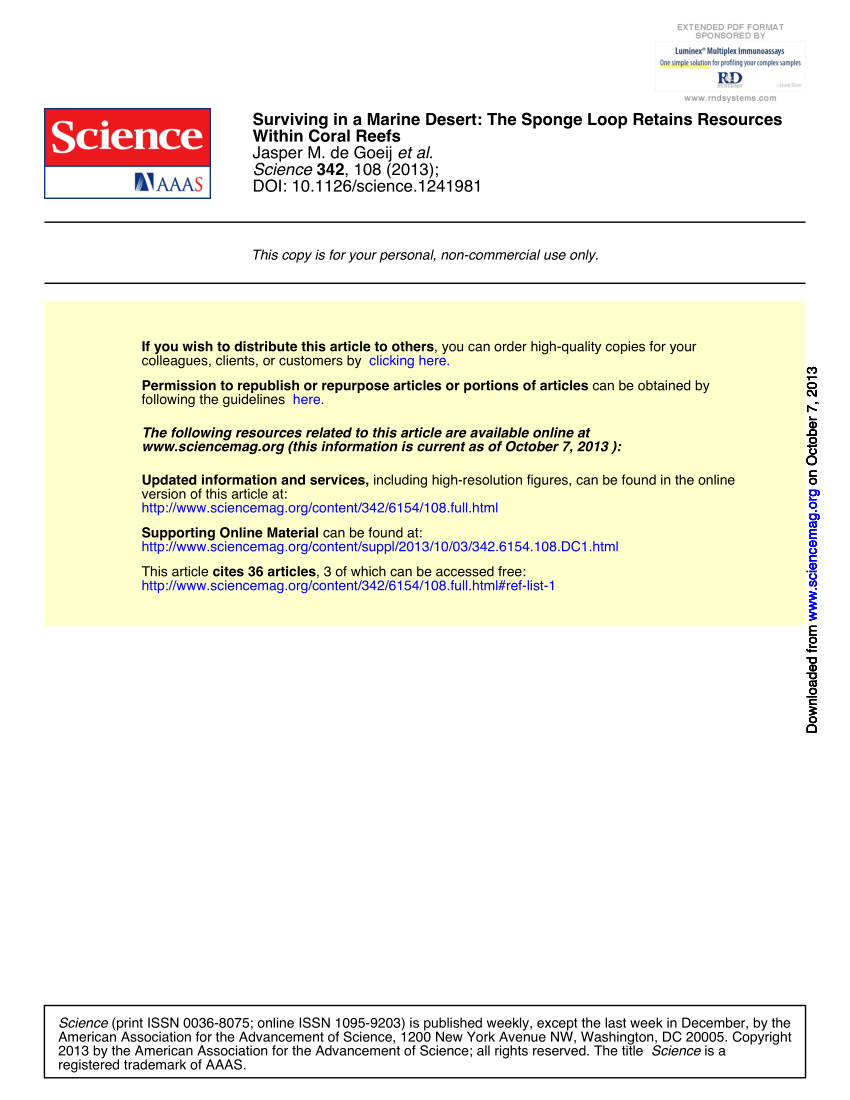

I would strongly encourage you get a copy od Forest Rohwer's "COral Reefs in the Microbial Seas" (kinndle is $10, paperback is $16) DeGoeij's work on sponges is important too (links below). It matters a great deal what kind of bacteria are promoted in reef systems. Some types of DOC will promote heterotrophic bacteria and potentially pathogenic shifts in coral microbiomes. Here's a list of refferences and some videos you may find informative:
Forest Rohwer "Coral Reefs in the Microbial Seas"
Changing Seas - Mysterious Microbes
Nitrogen cycling in hte coral holobiont
BActeria and Sponges
DOC stuff:
Indirect effects of algae on coral: algae‐mediated, microbe‐induced coral mortality
Coral seperated from algae with a .02 µm filter die. Treatment with aampicillan prevents death.
Error - Cookies Turned Off
onlinelibrary.wiley.com
Influence of coral and algal exudates on microbially mediated reef metabolism.
Coral DOC improves oxygen (autotrophy), algae DOC reduces oxygen (heterotrophy).

Influence of coral and algal exudates on microbially mediated reef metabolism
Benthic primary producers in tropical reef ecosystems can alter biogeochemical cycling and microbial processes in the surrounding seawater. In order to quantify these influences, we measured rates of photosynthesis, respiration, and dissolved organic carbon (DOC) exudate release by the dominant...peerj.com
Role of elevated organic carbon levels and microbial activity in coral mortality
Effects of Coral Reef Benthic Primary Producers on Dissolved Organic Carbon and Microbial Activity
Algae releases significantly more DOC into the water than coral.
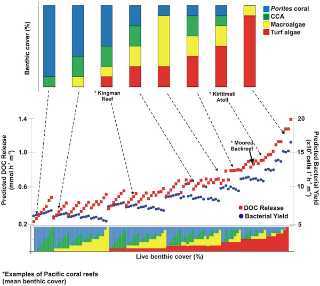
Effects of Coral Reef Benthic Primary Producers on Dissolved Organic Carbon and Microbial Activity
Benthic primary producers in marine ecosystems may significantly alter biogeochemical cycling and microbial processes in their surrounding environment. To examine these interactions, we studied dissolved organic matter release by dominant benthic taxa and subsequent microbial remineralization in...journals.plos.org
Pathologies and mortality rates caused by organic carbon and nutrient stressors in three Caribbean coral species.
Starch and sugars (doc) caused coral death but not high nitrates, phosphates or ammonium.
Sponge stuff:
Element cycling on tropical coral reefs.
This is Jasper de Geoij's ground breaking research on reef sponges. (The introduction is in Dutch but the content is in English.)
Sponge symbionts and the marine P cycle

Sponge symbionts and the marine P cycle
Marine sponges are ubiquitous colonizers of shallow, clear-water environments in the oceans (1, 2). Sponges have emerged as significant mediators of biogeochemical fluxes in coastal zones by virtue of respiring organic matter and facilitating both the consumption and release of nutrients (3, 4)...www.pnas.org
Phosphorus sequestration in the form of polyphosphate by microbial symbionts in marine sponges

Phosphorus sequestration in the form of polyphosphate by microbial symbionts in marine sponges
Coral reefs are highly productive ecosystems that raise a conundrum called “Darwin’s paradox”: How can high production flourish in low-nutrient conditions? We show here that in three abundant Caribbean sponges, the granules that have been commonly observed in sponge tissue for decades are...www.pnas.org
Differential recycling of coral and algal dissolved organic matter via the sponge loop.
Sponges treat DOC from algae differently than DOC from corals
Error - Cookies Turned Off
besjournals.onlinelibrary.wiley.com
Surviving in a Marine Desert The Sponge Loop Retains Resources Within Coral Reefs
Dissolved organic carbon and nitrogen are quickly processed by sponges and released back into the reef food web in hours as carbon and nitrogen rich detritus.

(PDF) 2013 deGoeij Science Sponge loop
PDF | On Jun 23, 2015, Jasper M de Goeij and others published 2013 deGoeij Science Sponge loop | Find, read and cite all the research you need on ResearchGatewww.researchgate.net
Natural Diet of Coral-Excavating Sponges Consists Mainly of Dissolved Organic Carbon (DOC)

Natural Diet of Coral-Excavating Sponges Consists Mainly of Dissolved Organic Carbon (DOC)
Coral-excavating sponges are the most important bioeroders on Caribbean reefs and increase in abundance throughout the region. This increase is commonly attributed to a concomitant increase in food availability due to eutrophication and pollution. We ...www.ncbi.nlm.nih.gov
The Role of Marine Sponges in Carbon and Nitrogen Cycles of COral Reefs and Nearshore Environments.
The role of marine sponges in carbon and nitrogen cycles of coral reef and nearshore environments - ProQuest
Explore millions of resources from scholarly journals, books, newspapers, videos and more, on the ProQuest Platform.search.proquest.com
Yeah I’ve added so many pods and bugs over the years. I’m trying to think smaller than bugs and not just bacteria. My first dose of LRE had similar responses as wonder mud and stuff from Hawaii.This is how I see it: no animals we keep fail to add to the detritus chain. Detritivores eat and then excrete more detritus. Physical removal wins
Some ultra low surface area systems can be in a lifted vs settling state for the waste and in this case maybe the filter sock will catch it, maybe it won't.
No reef using a sandbed qualifies as low SA, it's a catchpoint along with rocks. I don't think feeding pods is the issue
Your daily fare does that
Its that they thin over time due to selection and we need to re add some, order a bag o pods
They still won't remove detritus they'll add to it
